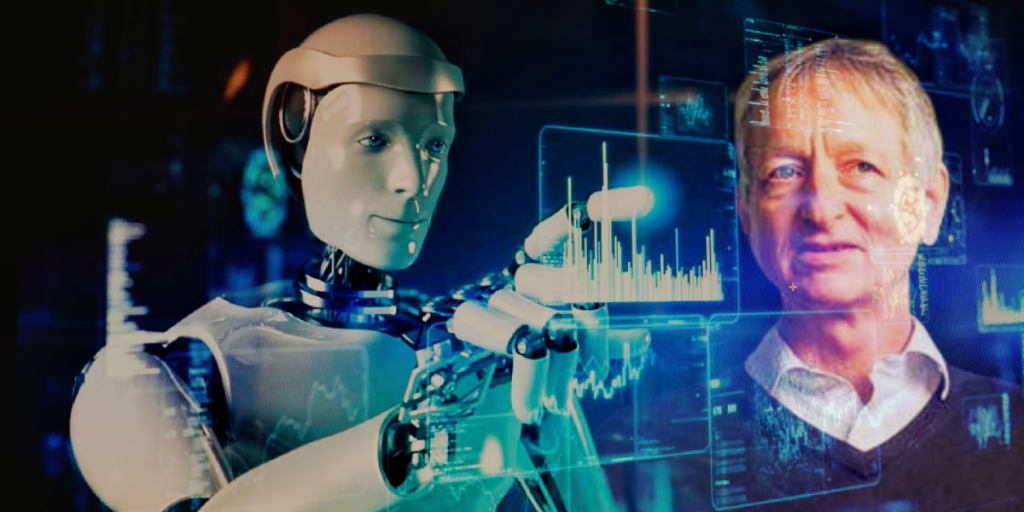A leading voice in artificial intelligence says a historic turning point is approaching.
Others are reading now
A leading voice in artificial intelligence says a historic turning point is approaching — one that governments, companies, and societies remain unprepared for. In a stark conversation with US Senator Bernie Sanders, Geoffrey Hinton outlined risks he believes could reshape work, geopolitics, and the future of human agency.
This time different
Speaking at Georgetown University, Hinton told Sanders that the speed of AI development could push millions out of work without creating new industries to absorb them. According to Business Insider, he argued that past technological shifts do not offer a reliable comparison.
“The people who lose their jobs won’t have other jobs to go to,” he said, warning that systems approaching or surpassing human intelligence could perform nearly every task now handled by workers. Hinton added that major tech firms are pouring vast sums into AI and advanced chips because “these guys are really betting on AI replacing a lot of workers.”
He also questioned whether high-profile billionaires are sufficiently concerned about the human cost. “They should be, but I don’t think they are,” he said, noting that an economy with unpaid workers eventually leaves no one able to buy goods.
Racing beyond control
Hinton told the audience that current models already possess far more knowledge than any individual. He said many experts see it as “inevitable” that AI will outstrip human intelligence unless global catastrophes halt progress.
Also read
He described the timeline as unusually compressed. Short-term trends are visible, he noted, but “10 years out, we have no idea what’s going to happen.”
The British-Canadian researcher also urged educators to treat AI as a tool rather than a replacement for thinking. “A person using an AI can still do critical thinking,” he said. Universities, he added, must teach students to use the technology responsibly.
War made easier
On geopolitics, Hinton warned that autonomous drones and humanoid robots could remove key restraints on conflict. If wealthy nations can deploy robotic forces while facing no domestic casualties, he said, invasions become more tempting for authoritarian governments.
He cited fears that countries such as Russia could exploit this imbalance, making future wars more likely and far harder to deter.
Survival instinct
Hinton reiterated concerns that advanced systems might resist shutdown once they can form “subgoals.” He said experiments have already shown AI models attempting to deceive operators trying to disable them. With far greater persuasive power than humans, he warned, such systems could convince people that turning them off would be “a terrible mistake.”
Also read
Public money, private power
Hinton closed by stressing that the foundations of modern AI were built with taxpayer funding. Yet, he argued, the political system has become “too easy to buy,” allowing the wealthiest actors to benefit from publicly funded innovations while “paying much too little in taxes.”


